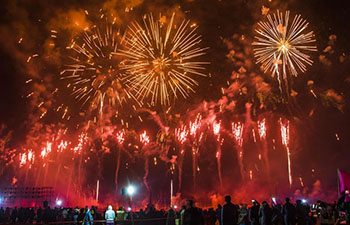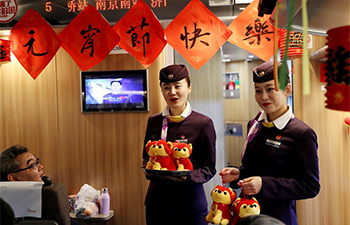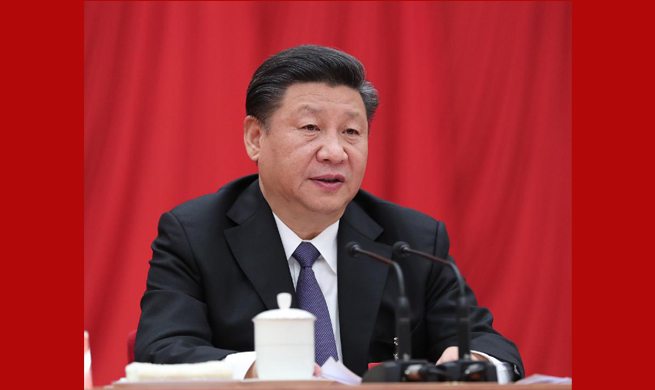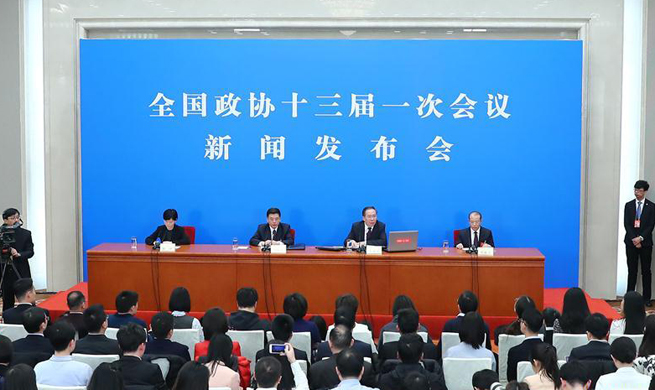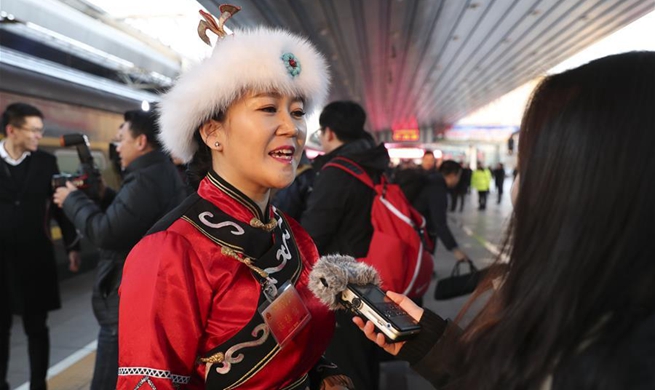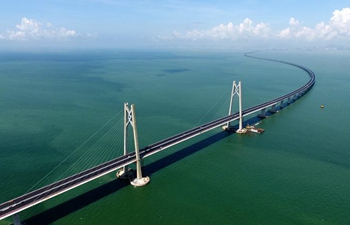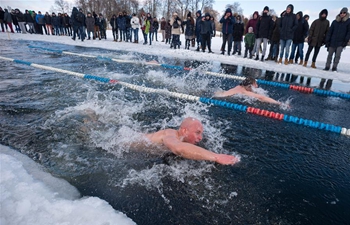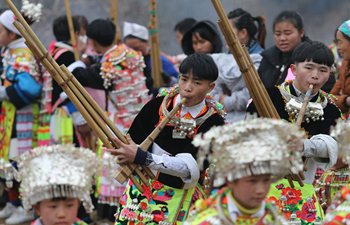by William M. Reilly
UNITED NATIONS, March 2 (Xinhua) -- The UN Special Investigation into deadly attacks on Tanzanian UN peacekeepers in the Democratic Republic of the Congo (DRC) late last year blames a single rebel group and faults the blue helmets' leadership, the chief UN spokesman said on Friday.
The Alliance of Democratic Forces (ADF) is suspected in the Dec. 7 attack that killed 15 and wounded 43 UN peacekeepers from Tanzania at their UN mission (MONUSCO) base in Semuliki, DRC, said spokesman Stephane Dujarric. There is still one peacekeeper missing from the attack.
The investigation also covered two earlier attacks against MONUSCO peacekeepers from Tanzania in nearby Mamundioma on Sept. 16 and Oct. 7, 2017, he said.
The three attacks were all in the Beni region of North Kivu.
The Special Investigation team was led by former UN Assistant-Secretary-General for Rule of Law and Security Institutions, Dmitry Titov of Russia. The panel included military and security experts, political and logistical officers and two senior officers of the Tanzanian People's Defense Forces.
The panel aimed at establishing the circumstances leading to the attacks, evaluate MONUSCO's response and determine actions needed to prevent such attacks from occurring again.
"The Special Investigation team concluded that the three attacks against the UN peacekeepers were carried out using a similar modus operandi (method of operation) and that all available evidence points to the ADF as the attacker," Dujarric said, quoting a Note to Correspondents released Friday.
"The team found a number of gaps in the training and posture of MONUSCO and its Force Intervention Brigade (FIB)," it said. "Moreover, the Investigation team noted that the Mission did not have an actionable contingency plan to reinforce and extract its peacekeepers during the attack."
"Issues of command-and-control, leadership and lack of essential enablers such as aviation, engineers and intelligence were also major obstacles and need to be addressed urgently," the note said.
The team recommends that MONUSCO, UN Headquarters and troop-contributing countries should "actively pursue a strategy aimed at rendering the FIB more robust, agile and better suited for offensive operations especially in remote and difficult terrains," the note said.
"Based on the findings of the Special Investigation team, MONUSCO has updated its Action Plan on Improving Security of Peacekeepers," Dujarric said. "It has installed perimeter lighting, upgraded the communications infrastructure and enhanced the security perimeters at several of its bases."






